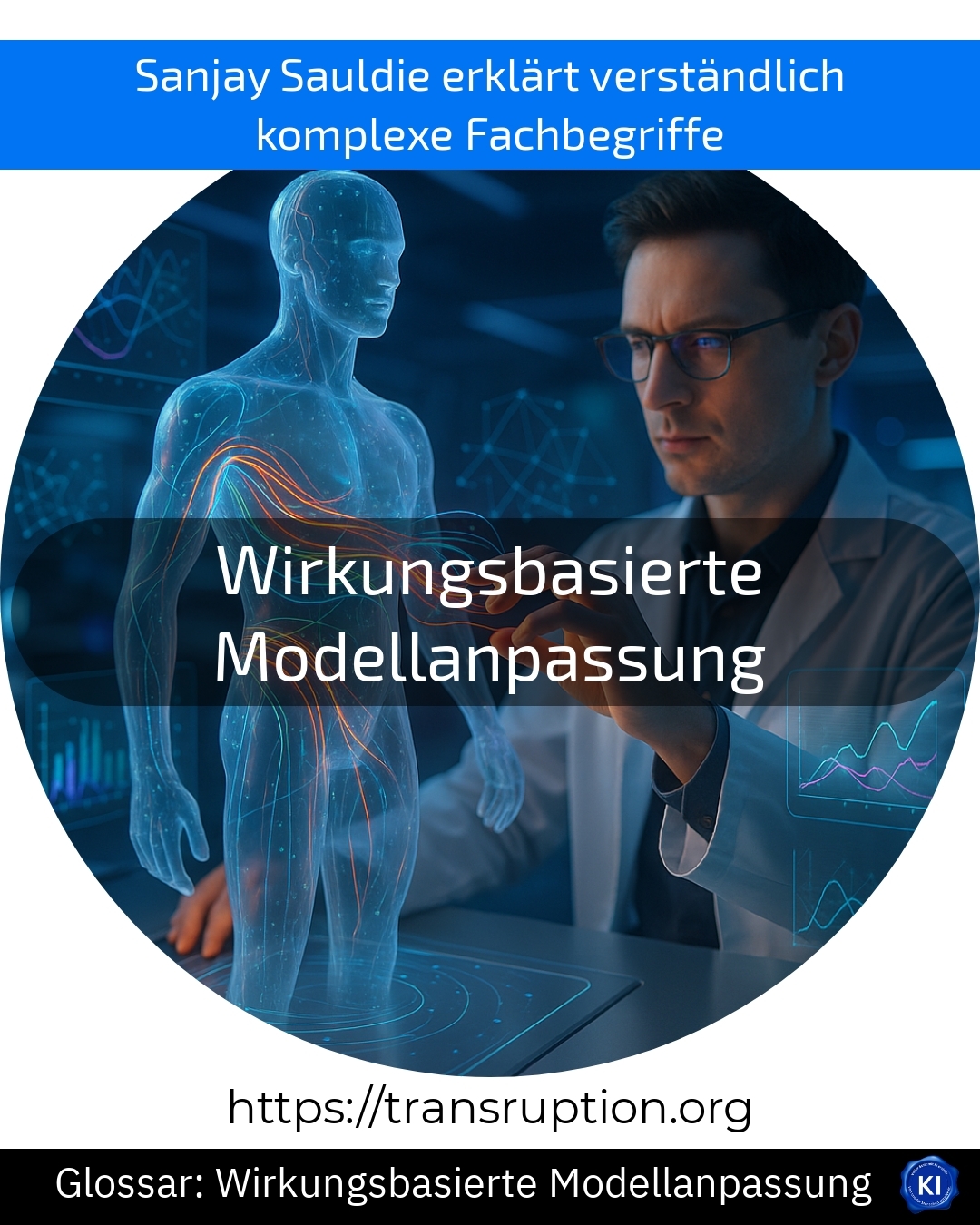Impact-based model adaptation is particularly relevant in the areas of artificial intelligence, big data and smart data, as well as in industry and Factory 4.0. The aim is to change digital models in a targeted manner so that they lead to better results. For example, a model can be software that predicts when a machine needs to be serviced.
Typically, a company collects a lot of data about production. With impact-based model adaptation, this data is used to improve the model so that the predictions become even more accurate. The key here is not to simply change anything, but to make targeted adjustments where the greatest effect is achieved.
An illustrative example: Suppose a factory uses sensors to monitor machines. An AI model is supposed to predict failures. After the first test runs, it turns out that the model is often wrong. The developers then take a targeted look at which data and functions are particularly important and adapt the model based on its effectiveness. In the end, the predictions are much more reliable and production runs more smoothly.
With impact-based model customisation, companies can make their processes more efficient and future-proof.















